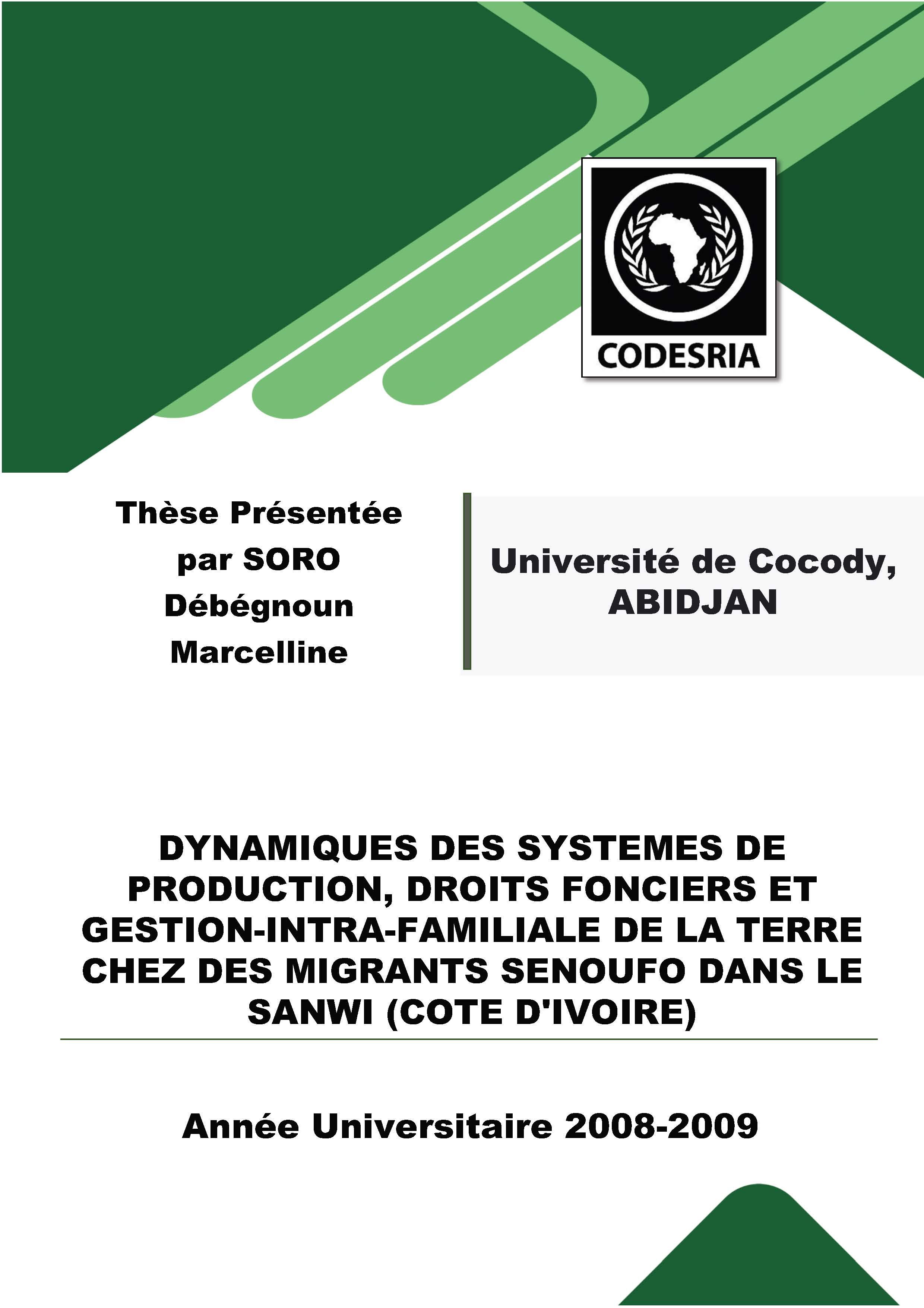DYNAMIQUES DES SYSTEMES DE PRODUCTION, DROITS FONCIERS ET GESTION-INTRA-FAMILIALE DE LA TERRE CHEZ DES MIGRANTS SENOUFO DANS LE SANWI (COTE D'IVOIRE)
Keywords:
Land rights, Intra-family, land management, agrarian system of production, Senoufo, Migrant, Sanwi, Côte d'IvoireSynopsis
The intra-family management of land rights in studies driven in Côte d'Ivoire, is in general approached in the autochthonous communities, and few in migrants perspective whom, in the Ivoirian context play a key role in land dynamics. The general question which guides cogitation is that how land is managed within migrants' families, particularly those of the senoufo group installed in the forested region of Côte d'Ivoire? The main objective of this study is to understand and decribe the process of allocation, transfer and management of land rights within families. Study, principally qualitative, leans on a comprehensive and processual approach, implemented across an ethnographie approach.
On the basis of comparative analysis between, Kongodjan, Ayenouan and Kohourou, villages with important senoufo population in the Southeast of Côte d'Ivoire, it emerges that in these contexts individual rights appeared in a context of land abundance. Further to inheritance, this rights evolve toward "Patrimonialisation" of land rights, with constitution of a joint family good. The noticed evolution of rights concemed only use rights and not appropriation rights. This evolution however did not drive systematically to a marchandisation of land rights, due to the family status of lands. The relationship autochtonous-migrants do not have impact on the intra-family management of lands used by migrants. The migrants manage their lands freely by referring to their own systems of value. They nevertheless acknowledge detaining rights on lands which do not belong to them. The origin families of the migrants also do not have impact on the intra-family management of rights detained by the migrants. Nowadays, the content of intra-family management is determined by family council restrained to the descendants of the pioneers installed in the immigration area.
The evolution of the local agrarian opportunities of production-drove to an evolution of the intra-family game of rights. However in spite of these evolutions, intra-family management is few conflictual.
In conclusion, land rights and their intra-family management are social constructing, result of a process of opposition, negotiation and general agreement. Their pertinence and coherence depend of specific environments in which land relations are built.
Downloads
References
RISS M. D., 1984 : La place de la femrrie dans les mùtations inten1es de l'économie rurale à partir d'un exemple sénégalais. In Blanc-Pamard C. (ED.), Bonnemaison J (ED), Boutrais JL (ED), Lassailly-Jacob V. (ED.), Lericollais A (ED). Le développement rural en questions: paysages, espaces ruraux, systèmes agraires: Maghreb-Afrique noire-Mélanésie. Paris, ORSTOM,417-431. http://horizon.documentation.ird.fr.
ROUGERIE G., 1957 : Les pays Agni du Sud-Est de la Côte d'Ivoire. Etudes Eburnéennes. SA V ANE. M A., 1985 : Femmes, production et crise alimentaire en Afrique au Sud du Sahara: Les origines de la faible productivité des femmes. In Femmes et stratégies alimentaires. Paris, ORSTOM, p.280-292. http://horizon.docmnentation.ird.fr.
WHITEHEAD A & DZODZI T., 2003 : Policy Discourses on Women's Land Rights in SubSaharan Africa: The Implications Of the Re-tum to Customary in Agarian Change, Gender and Land Rights, Edited by Shahra Razavi, pp 67-112.
YACOUBA M., 1999: Niger's experiences in decentralised management of natural resources. Paper presented at the DFID workshop on Land Rights and Sustainable Development in Sub-Saharan Africa: Lessons and Way Forward in Land Tenure Policy, Sunningdale, UK, 16-19 Feb.






